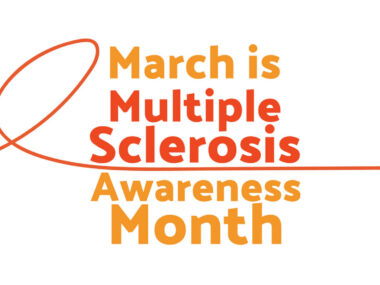Biogen Idec Enters Big Data Collaborations WIth Google and Imperial College London To Better Understand MS
Written by |

A report by Bloomberg News‘ Caroline Chen says multinational biotech firm Biogen Idec Inc. is teaming up with Internet and IT colossus Google, pooling efforts to research environmental and biological factors potentially associated with Multiple Sclerosis (MS) progression. Ms. Chen notes that the Biogen Idec relationship is the second major pharmaceutical sector collaboration for the life science division of Google X labs — Google’s research and development skunk works from which also sprang the recently aborted Google Glass wearable computer concept and the company’s experiments with self-driving cars.
Biogen Idec specializes in development of new therapies for the treatment of serious neurological, autoimmune and hematological diseases, with a particular focus on neurological disorders like MS, which is the most common neurological disease affecting young adults in the U.S. and Canada. Multiple Sclerosis is usually diagnosed in persons between ages 20 to 50 — rarely in persons under 12 or over 55 years of age. The disease is two to three times more common in women than in men, and is estimated to affect 2.3 million people worldwide.
MS is an autoimmune/neurological disorder in which the body’s immune system malfunctions and attacks myelin, a fatty substance that sheaths and protects nerve fibers. When myelin is depleted, nerve fibers are no longer insulated from each other, resulting in neurological “short circuits.” Symptoms tend to be idiosyncratic from patient to patient and can include weakness or fatigue; numbness or tingling; blurred vision, impaired color perception, visual loss; impaired muscle movement coordination; difficulty with bladder or bowel continence; muscle stiffness (spasticity); speech difficulties and sometimes challenges with memory or other mental skills.
There is no proven cure for MS, and approved treatments concentrate on immune system suppression and management of symptoms. Ms. Chen reports that Biogen hopes the collaboration with Google will synergize the tech company’s data analytics and technology expertise with Biogen’s knowledge of the disease resulting in greater understanding of the disease’s process and development of more effective, and less expensive drugs.
[adrotate group=”4″]
The collaboration with Google is not Biogen Idec’s only research partnership with big data expertise, Last month it was announced that the company is entering a Joint Working collaboration with Imperial College London on a three-year project called OPTIMISE, currently still in planning stages, which will develop and deploy tools for collecting a wide range of data from people with MS in addition to routine clinical assessments. The project will integrate brain scans, genomics data, biomarkers from blood samples, self-reported quality of life measures and data from sensors that track movement into a single database.
OPTIMISE data and tools will initially be deployed through MS centres in Imperial and three other UK institutions before expanding access to the approach for researchers worldwide.
An Imperial College release says by comprehensively capturing and managing data using methods that can be implemented combining low cost and large scale, the project will allow researchers to better monitor outcomes and evaluate new treatments, as well as accelerating development of more personalized therapeutic approaches based on better understanding individual factors that contribute to MS progression.
Imperial College says data transparency and open access are core objectives of the the OPTIMISE project, which will collect both clinical and patient-centred data toward a longer-term goal of making these data accessible to both researchers and patients who contributed. Biogen Idec has provided initial funding for development of OPTIMISE IT software, and the collaboration with Imperial College also intends to facilitate links with MS registries across Europe which are already collaborating with Biogen Idec, bringing additional “in kind” resources for data analyses to bear in ways that will contribute to patient benefit.
 Professor Paul Matthews, OBE, MD, DPhil, FRCP, FMedSci, head of the new Division of Brain Sciences in the Department of Medicine of Imperial College, London, principal Investigator on the OPTIMISE project, and Edmond and Lily Safra Chair in Translational Neuroscience and Therapeutics at Imperial College London, says: “This important collaborative project is underpinned by support from the National Institute for Health Research (NIHR) Imperial Biomedical Research Centre. It will enable a new level of clinical research for MS. It will aggregate data from MS patients and their carers to provide a detailed picture of how the disease affects them and how well current treatments work.
Professor Paul Matthews, OBE, MD, DPhil, FRCP, FMedSci, head of the new Division of Brain Sciences in the Department of Medicine of Imperial College, London, principal Investigator on the OPTIMISE project, and Edmond and Lily Safra Chair in Translational Neuroscience and Therapeutics at Imperial College London, says: “This important collaborative project is underpinned by support from the National Institute for Health Research (NIHR) Imperial Biomedical Research Centre. It will enable a new level of clinical research for MS. It will aggregate data from MS patients and their carers to provide a detailed picture of how the disease affects them and how well current treatments work.
Although led by Imperial, this initiative has grown out of a co-operative vision developed between most of the major MS centres across the UK. Looking forward, we intend that this public-private collaboration will grow with the same spirit of cooperation.”
Dr. Matthews’ research is noted for innovative translational applications of clinical imaging for the neurosciences that have been developed through exploiting powerful synergies between the physical and quantitative sciences and medicine. An overarching application in Dr. Matthews’s work has been to address the challenge of neurodegeneration in Multiple Sclerosis (MS) and in enhancing intrinsic brain repair and plasticity for functional recovery. He was awarded an OBE in 2008 for services to neuroscience, and was elected to the Academy of Medical Sciences in 2014.
 Dr. Fiona Thomas, UK and Ireland Director of Medical Affairs, Biogen Idec, comments: “This innovative project heralds the first systematic and multi-centre collection of patient, physician and MRI data in the UK to better inform doctors, the health service and industry about patient needs. This will facilitate critical analysis of MS patient populations allowing clinicians to offer more personalized management of their disease.”
Dr. Fiona Thomas, UK and Ireland Director of Medical Affairs, Biogen Idec, comments: “This innovative project heralds the first systematic and multi-centre collection of patient, physician and MRI data in the UK to better inform doctors, the health service and industry about patient needs. This will facilitate critical analysis of MS patient populations allowing clinicians to offer more personalized management of their disease.”
The OPTIMISE portal will use a custom-made software platform developed at the Imperial College London’s Data Science Institute at to store, curate and analyse data. A central element of the project will be an open access website (https://www.optimise-ms.org) as a nexus through which researchers will be able to share, manage and analyse data within a secure framework. Patients will also be encouraged to use the system to report outcomes, to discuss the project with other participants and to provide feedback to researchers. Smartphone apps will capture GPS data from movement sensors to monitor patient mobility.
Biogen Idec currently makes five MS drugs, including AVONEX (interferon beta-1a), which is produced by recombinant DNA technology. Indicated for treatment of relapsing forms of MS, the clinical objectives of AVONEX therapy are slowing the progression of disability, decreasing the frequency of clinical exacerbations, and reduction of the number and volume of active brain lesions identified on Magnetic Resonance Imaging (MRI) scans.
Biogen reports that clinical effects of AVONEX in MS were studied in a randomized, multicentre, double-blind, placebo-controlled study in patients with relapsing (stable or progressive) MS. In the study, 301 patients received either 6 million IU (30 g) of AVONEX (n=158) or a placebo (n=143) by intramuscular injection once weekly over two years.
Primary outcome assessment found that time to onset of sustained progression in disability was significantly longer in patients treated
with AVONEX than in patients receiving a placebo, with the percentage of patients progressing by the end of two years 34.9% for placebo-treated patients and 21.9% for patients treated with AVONEX, indicating a 37% reduction in the risk of disability progression in patients treated with AVONEX.
AVONEX treatment aso significantly decreased the frequency of exacerbations (relapses) in patients enrolled in the study for at least two years, from 0.90 in the placebo-treated group to 0.61 in the group treated with AVONEX (p = 0.002, representing a 32 percent reduction in the annual exacerbation rate. The percent of exacerbation-free patients was 38% (p = 0.03) in the group treated with AVONEX.
Patients treated with AVONEX also demonstrated significantly lower Gd-enhanced lesions number and volume.
For more information, visit:
https://www.biogenidec.com/
Sources:
Biogen Idec Inc.
Imperial College London
Bloomberg News
Multiple Sclerosis Society
Image Credit:
Imperial College London


